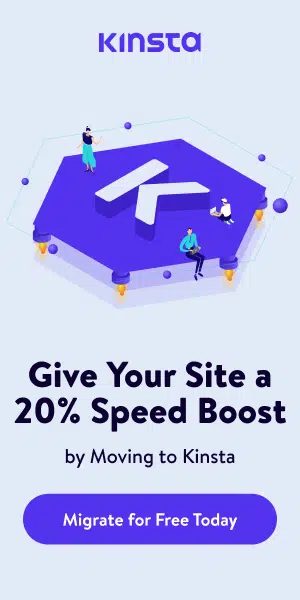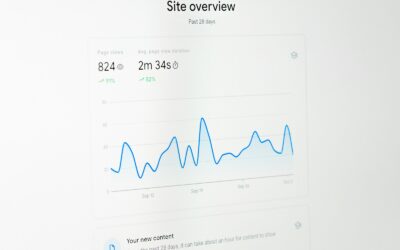Are you looking for keyword research services or considering that your current marketing ROI isn't really where you want it to be?
Small business owners face countless challenges when competing online. With over 5.6 billion searches conducted on Google daily, appearing in the right search results can make or break your business. Yet many entrepreneurs struggle to understand which search terms their potential customers actually use when looking for products and services.
While advertising, social media, and other forms of digital marketing are great. Search Engine Optimization is the only way to get your website content ranking for the best keywords for your brand. Keywords helps brands become visible, but if you ignore SEO, your marketing ROI in the long run is going to be much more expensive.
This is where SEO keyword research services become invaluable. Professional keyword research goes far beyond simply guessing what people might search for. It involves analyzing search volume, understanding user intent, and identifying opportunities that can transform your online visibility. The difference between businesses that thrive online and those that remain invisible often comes down to one critical factor: targeting the right keywords and creating map keywords that assign relevant content to each and every page on a website.
Understanding which search terms drive qualified traffic to your website isn't just helpful—it's essential for sustainable growth. Whether you're launching a new website or trying to improve existing search rankings, keyword research forms the foundation of every successful SEO strategy.

Photo by Austin Distel on Unsplash
Understanding the Basics of SEO and Keyword Research
What is Keyword Research? & Why is Keyword Research Important?
Keyword research is the process of discovering and analyzing the actual search terms that people enter into search engines when looking for information, products, or services. Rather than relying on assumptions about what your target audience might search for, this systematic approach reveals the exact phrases that generate real search traffic.
Looking for an experienced Wordpress Development company?
The keyword research process involves examining search volume data, competition levels, and user intent to identify the most valuable search terms for your business. This data-driven approach ensures your content optimization efforts focus on keywords that can actually drive meaningful results.
Types of Keywords and Their Strategic Value on Search Engine Results Pages
|
Category |
Keyword Type |
Strategic Value |
|---|---|---|
|
Intent |
Informational, Navigational, Commercial, Transactional |
Align content with user goals and funnel stage |
|
Length / Specificity |
Short-tail, Mid-tail, Long-tail |
Balance visibility and conversion |
|
Research Role |
Seed, Primary, Secondary, LSI Keywords |
Guide structure, relevance, and research |
|
Trend / Longevity |
Evergreen, Trending |
Blend foundational and timely content |
|
Brand / Audience Focus |
Branded, Customer-Centric |
Personalize and protect brand authority |
|
Match Type |
Broad, Phrase, Exact, Negative |
Refined targeting (especially for PPC) |
|
Specialized |
Geotargeted, Competitor, Product, Niche |
Optimize for location, gaps, and specificity |
Major Types of Keywords & SEO Value Broken Down Because We're Not All SEO Experts
By Searcher Intent
Informational Keywords
Used when users seek knowledge or answers. Ideal for blog posts, guides, and featured snippets.
Navigational Keywords
Aim to reach a specific site or page (often brand or login-related). Useful for optimizing branded landing pages.
Commercial Keywords
Used to research potential products or offers (e.g., “best X for Y”). Great for product comparisons and category pages.
Transactional Keywords
Reflect readiness to act (e.g., “buy,” “order”). High conversion potential; ideal for product or checkout pages.
By Keyword Length & Specificity
Short-Tail Keywords (Head)
Very broad (1–2 words), high volume, highly competitive. Build top-of-funnel visibility.
Mid-Tail Keywords (Mid-Range)
2–3 words; balance between reach and specificity. Strong for category-level targeting.
Long-Tail Keywords
3+ words, niche-specific, lower search volume but higher intent and conversion potential.
By Function or Role
Seed Keywords (Root)
Broad, generic starting point for keyword research. Typically short-tail.
Primary Keywords
The main focus term for a page—what it should ideally rank for.
Secondary Keywords
Closely related or supporting terms that provide semantic context and reinforce the primary keyword.
LSI (Latent Semantic Indexing) Keywords
Semantically related terms that help clarify page context and support relevance.
By Trend or Longevity
Evergreen Keywords
Consistently relevant over time. Ideal for foundational content that continues to deliver traffic long-term.
Trending or Fresh Keywords
Time-sensitive, peak for limited periods (e.g., holiday terms or current events). Great for timely content campaigns.
By Brand or Audience Focus
Branded Keywords
Include a specific brand, product line, or trademark. High intent and trust.
Customer-Centric (Audience-Targeted) Keywords
Tailored to a specific customer group or demographic (e.g., “for women,” “for beginners”).
By Match/Delivery Type (Primarily for PPC, but relevant organically)
Broad-Match Keywords
Capture a wide range of related variations and synonyms. Helpful for broad-topic authority building.
Phrase-Match Keywords
Contain the full phrase in order, though with additional surrounding terms. Useful for flexible but controlled targeting.
Exact-Match Keywords
Must match the search query precisely (or close variants). Best for high specificity and landing page alignment.
Negative Keywords
Terms were excluded intentionally to avoid irrelevant traffic (commonly used in ads).
Specialized & Additional Types
Geotargeted (Local) Keywords
Include location modifiers like city, state. Essential for local SEO.
Competitor Keywords
Terms your competitors rank for; insightful for strategic content gap analysis
Product Keywords
Directly describe specific products (e.g., “iPhone 15 Pro Max case”). Good for product pages.
Niche (or Low-Competition) Keywords
Highly specific, targeted, and often easier to rank for.
Do you think you have all the relevant keywords currently in your content strategy? Let's be honest, your existing content can be great, and you can have all the valuable keywords in the world. But if your website content (meta descriptions, alt text, paid search ads, blogs, landing pages, etc.) doesn't have relevant content to the actionable data found by mostly only professionals, your brand visibility isn't at its highest potential.
Search Intent and Its Impact on Keyword List Selection
Understanding search intent—the reason behind a user's search query—is crucial for effective keyword strategy and successfully gaining those Google search results. Informational searches indicate users seeking knowledge, navigational searches show users looking for specific websites, and transactional searches reveal purchasing intent.
By aligning your content with the appropriate search intent, you create more relevant experiences that search engines reward with better rankings. This alignment also improves user behavior metrics, as visitors find exactly what they're looking for on your website.

Photo by Firmbee.com on Unsplash
Essential Elements of SEO Services | A Successful Keyword Research Strategy
Identifying Your Target Audience
Effective keyword research begins with understanding your ideal customers. Consider their demographics, pain points, and the language they use when discussing problems your business solves. This customer-centric approach reveals search terms that might not be obvious but are highly relevant to your audience. Each specific keyword that leads back to your audience can become relevant.
Your target audience's search behavior varies based on their level of awareness about your industry. New prospects might use broad, informational queries, while qualified leads often search for specific solutions or provider comparisons.
Analyzing Search Volume, User Behavior, and Competition
Search volume indicates how many people search for specific terms monthly. However, high search volume doesn't automatically mean high value. Terms with moderate search volume and lower competition often provide better opportunities for small businesses to achieve meaningful search rankings.
Keyword difficulty metrics help evaluate how challenging it would be to rank for specific terms. Tools like Google Keyword Planner provide insights into competition levels, though professional keyword research services can access more sophisticated analysis tools and interpret data more strategically.
Professional Tools vs. Free Options
While Google offers free keyword research tools, professional SEO services utilize advanced platforms that provide deeper insights. These tools can identify keyword opportunities, analyze competitor strategies, and perform comprehensive gap analysis to uncover untapped search terms.
Professional keyword research agencies also understand how to interpret data contextually. Raw search volume numbers don't tell the complete story—experienced professionals consider seasonal trends, local search patterns, and industry-specific factors that impact keyword value.
Priceless Consulting's Approach to SEO Keyword Research Services
Military-Inspired Strategic Precision
As a Marine veteran-owned digital agency, Priceless Consulting brings disciplined strategic thinking to keyword research. This military-inspired approach means thorough planning, attention to detail, and systematic execution that leaves nothing to chance.
Our veteran perspective emphasizes understanding the mission—your business goals—before developing tactical keyword strategies. This ensures every search term we target serves a specific purpose in your overall marketing objectives.
Small Business-Focused Solutions
Many SEO services target large enterprises with substantial budgets. Priceless Consulting specializes in cost-effective keyword research solutions that level the playing field for small businesses competing against larger corporations.
We understand that small business owners need practical, actionable results rather than overwhelming data reports. Our keyword research deliverables focus on implementable strategies that busy entrepreneurs can understand and execute.
Real-World Success Stories
One local service business working with Priceless Consulting saw a 300% increase in website traffic within six months of implementing our keyword research strategy. By identifying and targeting long tail keywords specific to their service area, they began ranking on the first page of Google for multiple high-intent search terms.
Another client discovered untapped market opportunities through our keyword gap analysis. We identified search terms that their competitors were missing, allowing them to capture market share in profitable niches they hadn't considered before.
A retail client struggling with e-commerce visibility transformed their online presence by targeting the right keywords for their product categories. Our research revealed specific search terms that their target audience used, leading to improved organic search performance and increased sales.
Benefits of Investing in Professional SEO Keyword Research Services
Improved Search Rankings and Organic Traffic
Professional keyword research identifies realistic ranking opportunities based on your website's current authority and competition levels. Rather than targeting impossibly competitive terms, strategic keyword selection focuses on achievable wins that build momentum over time.
This methodical approach to targeting the right keywords generates consistent organic search growth. As your website begins ranking for multiple relevant search terms, you'll notice sustained increases in qualified website traffic.
Enhanced Content Optimization for Search Engines
Keyword research provides a roadmap for content creation that resonates with your target audience while satisfying search engine algorithms. Understanding which search terms your customers use helps you create content that answers their specific questions and addresses their needs.
This strategic content approach improves user engagement metrics, as visitors spend more time on pages that provide exactly what they were searching for. Search engines interpret these positive user behavior signals as indicators of content quality, further boosting your search rankings.
Better Understanding of Customer Needs
Analyzing search query data reveals valuable insights about your target audience's challenges, preferences, and decision-making processes. This intelligence informs not only your SEO strategy but also product development, marketing messaging, and customer service improvements.
Understanding the specific language your customers use when searching helps you communicate more effectively across all marketing channels, creating consistent messaging that resonates with your audience.

Photo by Tobias Dziuba on Pexels
Common Questions About Keyword Research
How Much Does Keyword Research Cost?
Professional keyword research costs vary based on the scope of analysis and industry complexity. Basic keyword research for small businesses typically ranges from a few hundred to several thousand dollars, depending on market competitiveness and research depth.
However, consider keyword research an investment rather than an expense. Quality research pays for itself through improved search rankings, increased website traffic, and higher conversion rates. The cost of professional research is minimal compared to the potential revenue growth from targeting the right keywords.
Which Platform Is Best for Keyword Research?
Professional SEO services utilize multiple research platforms to gather comprehensive data. While Google Keyword Planner provides valuable baseline information, advanced tools offer deeper competitive analysis, search trend data, and keyword opportunity identification.
The most effective approach combines multiple data sources with human expertise to interpret findings strategically. Professional keyword research services understand how to synthesize information from various platforms into actionable recommendations.
Is Google Keyword Research Free?
Google offers free access to basic keyword research through Google Keyword Planner, though detailed data requires an active Google Ads account. While these free tools provide useful starting points, they have limitations compared to professional research services.
Free tools typically provide broad search volume ranges rather than specific numbers, limited competitive analysis, and basic keyword suggestions. Professional services offer more precise data, advanced filtering options, and strategic interpretation that maximizes your keyword research investment.
Transform Your Content Optimization & Organic Search Strategy Today
Effective keyword research forms the foundation of every successful SEO campaign. Without understanding which search terms your target audience uses, even the most well-designed websites remain invisible to potential customers. Professional SEO keyword research services provide the strategic intelligence needed to compete effectively in organic search results.
The difference between businesses that succeed online and those that struggle often comes down to targeting the right keywords with the right strategy. As search engine algorithms become increasingly sophisticated, the importance of data-driven keyword selection continues to grow.
Priceless Consulting combines veteran-owned discipline with small business expertise to deliver keyword research that drives real results. Our strategic approach identifies opportunities that your competitors miss while focusing on achievable wins that build long-term SEO success.
Don't let your competitors capture the customers searching for your services. Unlock your SEO potential today by partnering with Priceless Consulting for comprehensive keyword research that transforms your online visibility and drives sustainable business growth.










